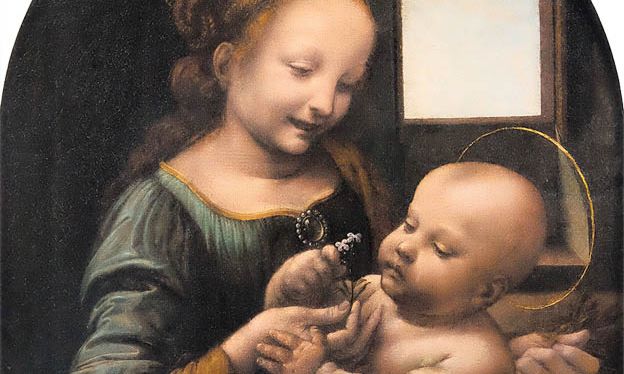The Hermitage had been due to lend Leonardo’s Benois Madonna (1478-80)to the Galleria Nazionale dell’Umbria
Antonio Natali, the director of Florence’s Uffizi Galleries from 2006 to 2015, has called on museums worldwide to collectively impose cultural sanctions against Russia. Doing so would “sow a great deal of shame on the regime”, he says. “As a former employee of the Uffizi galleries for over 30 years, I know how intensively Italian museums have collaborated with Russia,” Natali says. “If the culture ministries [of EU nations] met in Brussels and decided that we’re not going to deal with Russian museums for the next ten years, it would be a huge slap in the face [for] the regime.”
Natali, who had previously urged Italy to introduce an embargo on Russia in an article published in Florence daily La Nazione on 26 February, made the comments as sniping between Italy and Russia’s culture ministries intensified. But senior arts figures in Italy are divided on whether cultural institutions should impose tougher sanctions or preserve deteriorating relations with their Russian counterparts.
On 9 March, Italy’s culture ministry suspended “with immediate effect” all initiatives, including exhibitions, linked with the ongoing “Italy-Russia crossover year”. It also cancelled ongoing partnerships between Italy’s state-run regional museums and Russian institutions.
Partnership cancelled
As a result, an ongoing four-year partnership between the Galleria Nazionale dell’Umbria and the Hermitage, which would have seen the Perugia museum borrow Hermitage works including Leonardo’s Benois Madonna (1478-80) and paintings for a major Perugino exhibition in the coming months, has been cancelled. Representatives of both the Galleria dell’Accademia and Uffizi Galleries in Florence said that they had been told by Italy’s culture ministry to pause all cultural exchanges with Russian institutions.
By the time it received the order, the Galleria dell’Accademia had already dropped plans to loan three works from the Hermitage for a monographic exhibition of the 16th-century Italian painter Pier Francesco Foschi due to open in Florence in November, Cecilie Hollberg, the museum’s director, says.
A spokesman for Italy’s culture ministry said on 14 March that Italy had not recalled loans from Russian museums. Cultural sanctions, he added, were “aimed at Russian institutions rather than individual artists”. But Natali believes the Italian culture ministry should take firmer action. “The problem is that they are sitting on the fence,” he said. “With Putin, there is no hope of dialogue.”
Hollberg said: “I find that the idea of dialogue is wrong; I feel it is passive. The time when cultural dialogue [with Russia] was possible feels like something from a different era.”
In contrast, the politician and art historian Vittorio Sgarbi described cultural sanctions as “ridiculous”. Loaned works would remain in Italy until the end of the war in Ukraine due to logistical complications with transporting them back to Russia, he predicted. Eike Schmidt, the current director of the Uffizi, recently said that cultural sanctions were “counterproductive”, according to Il Corriere Fiorentino. “Here, we value cultural and peaceful relations, and we hope we can resume them in the future,” he reportedly said.
Russia hit back with its own sanctions. On 9 March, Mikhail Piotrovsky, the director of The Hermitage Museum, communicated in a note that, in accordance with government policy, loaned works including Picasso’s Young Woman (1909), on show at Rome’s Fondazione Alda Fendi; Titian’s Giovane donna con cappello piumato (1534-36)displayed at Milan’s Palazzo Reale would be withdrawn. Twenty three works by artists such as Antonio Canova and Giulio Carlini showing at Gallerie d’Italia in Milan, from four different Russian museums including The Hermitage, were also due to return earlier than planned.
The next day, the Fondazione Ermitage Italia, a Venice-based organisation created to foster relations between the Hermitage and Italian institutions, announced that it had suspended ties with the St Petersburg museum. Despite the crossfire, however, Italian and Russian cultural officials have tended towards damage limitation. On 15 March, Piotrovsky communicated that, following an accord between the Hermitage and the Russian culture ministry, the works loaned to the Palazzo Reale would not have to return immediately, and that those displayed at the Gallerie d’Italia and Alda Fendi could remain there until the end of their respective exhibitions on 27 March and 15 May.

